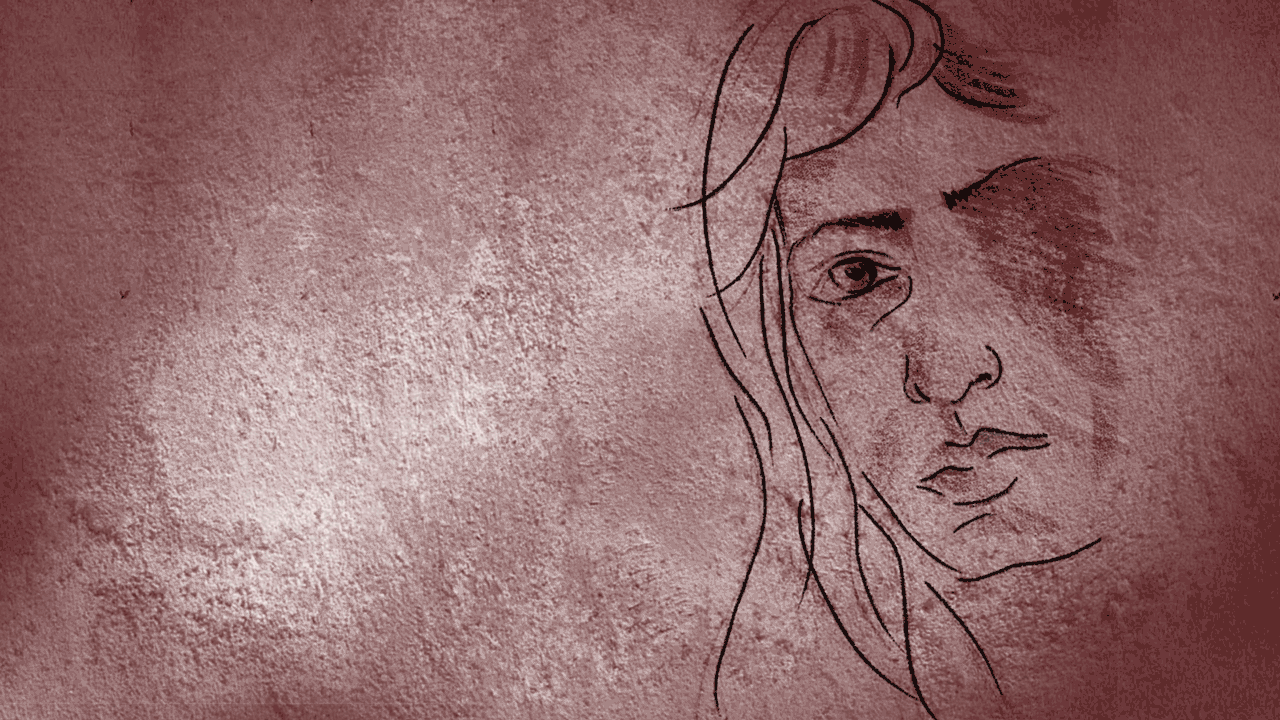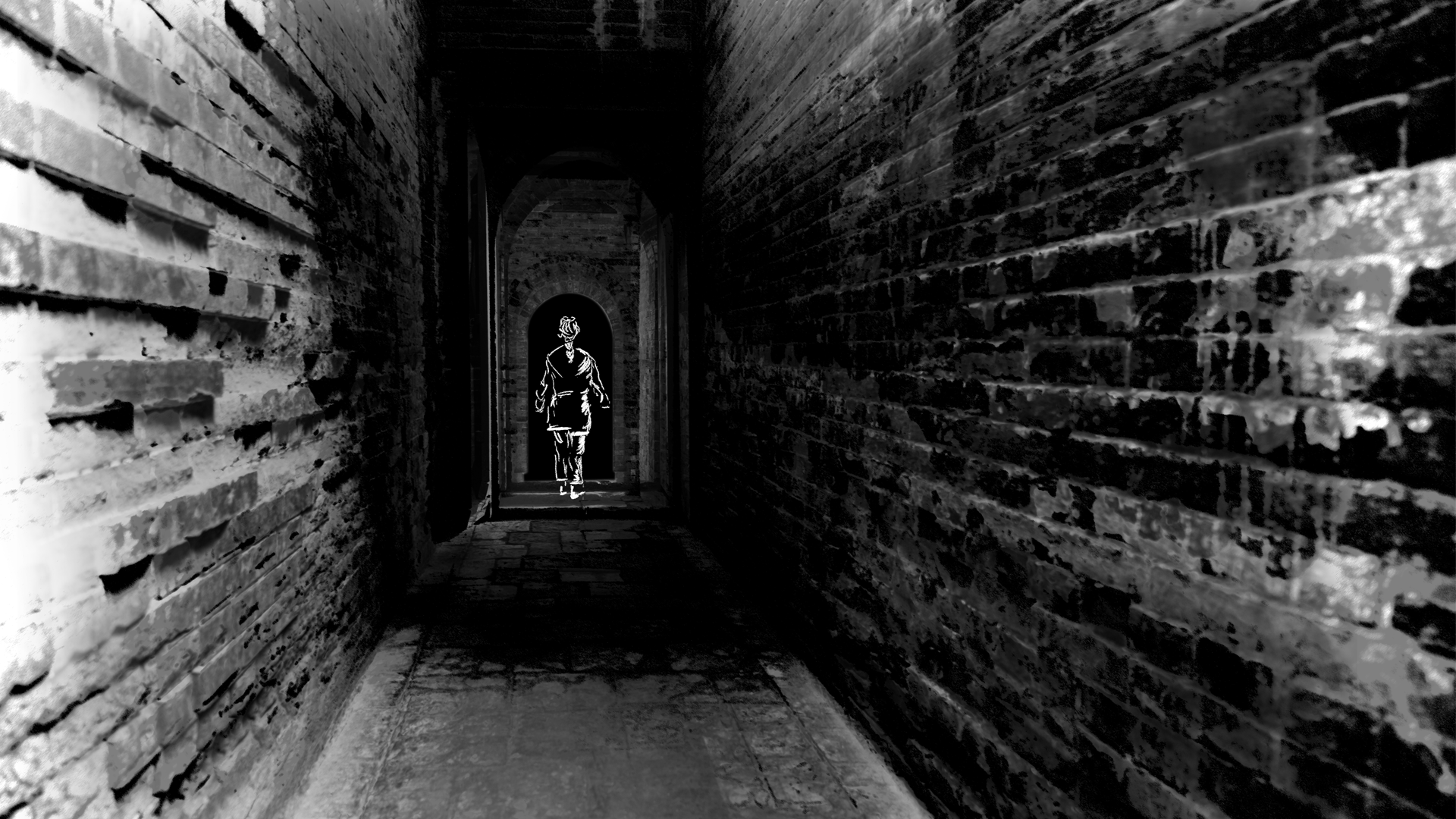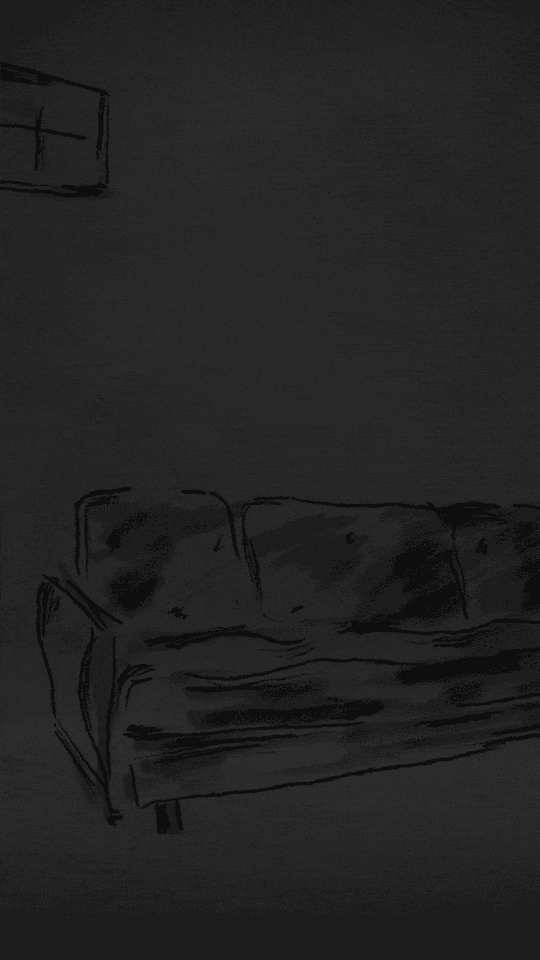Fahimeh
Fahimeh was just 16 when she was forced to marry a man 11 years her senior. She grew up in a conservative family.
"My mother believed that girls should not know anything about things like sex and menstruation," she says.
After the wedding she was sent home with her husband.
The first night with my husband was the most traumatising experience of my life.
From the very beginning Fahimeh knew she didn't want to stay in the marriage, but she was afraid of telling her family, thinking they would not understand. Knowing little about sex and contraception, Fahimeh became pregnant straight away.
More than 200 million women in the developing world don't have access to modern contraceptives, according to the World Health Organization (WHO). Fahimeh was one of them.
She pleaded with her husband to help her end the pregnancy.
I am a child myself, I am so inexperienced, I don’t even know if I want to keep on living, I can’t be a mother.
Eventually he agreed. Abortion in Iran is illegal unless the pregnancy poses a risk to the woman's life or the foetus has severe physical deformities.
Because of these restrictions, the abortion pill is not available on the market. So Fahimeh's husband bought hormone injections, which can cause a miscarriage, on the black market. The couple then went to a midwife who was willing to administer the injections.
Fahimeh was treated on a dirty old sofa in a damp basement. The midwife advised her to lift heavy things once she got home to help the hormones take effect. But she also warned her the termination might not succeed.
If it is not aborted you can come back and I will finish it off for you right here.
After a few hours, Fahimeh started feeling sick, as if she'd been poisoned. Unable to move and feeling very dizzy, she was rushed to hospital. Her parents were called in. Finding out that their daughter was trying for an abortion, they took Fahimeh away and told her husband not to contact her.
They locked me in a room.They treated me as if I was a criminal.
Fahimeh's parents took her to a gynaecologist. The doctor told them the injections could have damaged the foetus and recommended a legal abortion. But Fahimeh's mother refused, saying it would be "a sin". With no choice but to keep the baby, Fahimeh was sent back to her husband's home.
For nine months every single day I wished nothing but death for me and the creature living in me.
Fahimeh's son was born with severe lung problems and later developed epilepsy. After two years, her husband left, leaving Fahimeh to raise her son on her own.
Fariba
There is a lot of sadness in Fariba's voice as she talks about her abortion at the age of 23. She had just come out of a relationship and was numbing her pain by partying and drinking.
It was during one of these wild nights that she had unprotected sex with a man she had recently met.
Sex before marriage is illegal in Iran and can carry harsh punishments but Iran's ministry of education says that a growing number of students have sex by the age of 14.
I took the morning after pill, but for some reason it did not work.
When Fariba told her partner that she was pregnant, he simply disappeared. Fariba had to deal with the situation alone. She went to several doctors, but no-one was willing to help with an abortion.
I was crying every day. I was scared but worst of all I felt love for what was growing inside me.
Fariba says she felt the pulse in her womb and wished she could keep the baby, while knowing full-well that she could not.
After leaving yet another doctor's surgery in tears, she opened up to another woman in the waiting room. She was given the number of a midwife who might be able to assist.
The midwife asked Fariba to wait for a few more weeks. The abortion would be expensive, and as Fariba was not financially independent, she had to ask friends for money.
The abortion was finally carried out when she was two months pregnant.
The midwife told me to see her at her home. But it didn't seem like a place someone would live in.
Fariba was given two pills and sent home. After a few hours she started bleeding. Fariba cries as she recalls the moment when the foetus came out of her body.
Mahbod
"It's all my fault, a simple miscalculation," Mahbod says. The remorse in his voice is audible. Seven years ago, Mahbod who was a medical student, was in a relationship and planning to get engaged. He says he miscalculated his partner's menstrual cycle and she became pregnant.
Mahbod knew someone who sold illegal injections on the black market which could be used for abortions.
Mahbod administered the injections himself.
I made another mistake; she was in pain so I gave her an injection of pain killers which had the side effect of stopping the abortion.
Despite the pain and bleeding that followed, the abortion attempt failed. Mahbod asked for help and was told of a doctor in a nearby town who could provide abortion pills. Mahbod's girlfriend was in excruciating pain and under a lot of stress.
Although they were planning to get married, this pregnancy could get them both into trouble. Some women who have had sexual intercourse before marriage choose to have their hymen surgically fixed, a service advertised openly on social media.
The doctor prescribed some pills and sent them away.
"The pharmacist kept asking me who had prescribed these pills and for what reason," Mahbod remembers.
He and his girlfriend both still lived with their parents, so after taking the pills they couldn't go home. Instead they spent hours outside waiting for the abortion to start.
We kept walking in a park, my girlfriend was in pain and bleeding, she had to keep going to the public toilets of the park to change her sanitary pads. It was the worst day of my life. It was the worst day of our lives.
After almost seven hours it was finally over. Mahbod says the experience made him realise how dangerous illicit abortions can be and how important it is for them to be carried out safely and with professional supervision.
Zahra
"'You are pregnant.' One short sentence caused the world to spin around me," Zahra says, recalling the unexpected diagnosis. She had gone for a scan for a completely different reason. Zahra was not married and the pregnancy could have serious consequences in religiously conservative Iran.
A million questions were swirling around in her mind.
What should I tell my mother? What will my dad do to me if he found out? How am I going to tell my boyfriend? What a disgrace this whole thing can be for my sisters!
It was clear to the doctor that Zahra was in shock. He calmed her down and told her not to worry. "There are many doctors out there who can take care of it for you," he told her, without giving further details.
Zahra wanted to end the pregnancy as soon as possible and called a midwife whom she knew carried out illegal abortions. As Zahra was six weeks pregnant the midwife suggested a surgical abortion, booking her in for the next day.
Arriving a little before her appointment, Zahra was greeted by the midwife's assistant who told her to hurry in before anyone could see her. She was urged to be quiet at all times. The abortion was done right there in what seemed to be an improvised space.
It was a dark, painful and uncomfortable experience.
A week later Zahra went for a scan to make sure everything was fine but to her surprise the foetus was still in her womb.
"I went back to the midwife. She gave me abortion pills and the job was done," she recalls. "The truth is, I was so worried about people finding out that I rushed into a decision. I was not given proper and professional advice."
Zahra thinks the abortion could have been done with a pill in the first place and that people took advantage of her vulnerability to make more money.
"The midwife never suggested that I could take a pill and the surgery was 10 times more expensive than the pill," Zahra says. "The midwife was doing business!"
If I had access to information and proper medical help I would’ve made a wiser decision and wouldn’t have put my body and mind through all this.
The stigma attached to pregnancies of unmarried women means they are willing to risk their lives. The Iranian health ministry says that 6,000 medical abortions are carried out in the country every year, while an estimated 250,000 abortions take place illegally. The numbers are impossible to independently verify.










